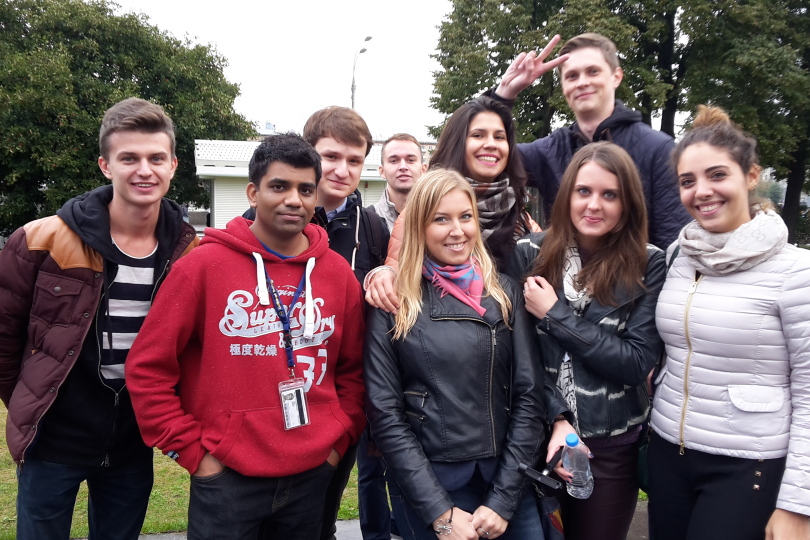
HSE Day Offers Something for Everyone
Russian students and teachers were not the only ones to actively participate in HSE Day on September 9; many foreigners who study or work at the university took part as well. Numerous activities enriching the celebration could be enjoyed without any knowledge of Russian — for example, Speed Dating, Dance Battle, and a variety of sporting events. However, some sites during the festival had a special English-language programme.
1.5
is the number of times by which the salary of teachers in Moscow professional and technical schools must be raised to recruit the ‘ideal teacher’ according to the heads of these institutions.
65%
of full-time students at Russian universities studied free of charge in 2014.
Entrepreneurship is About More than Just Money
On September 14 2015, Dr Alina Sorgner will give a talk at the annual meeting of the HSE Laboratory for Entrepreneurial Research on 'Does Entrepreneurship Pay? Empirical Analysis of Incomes of Self-employed, as Compared to Wages of Paid Employees'. Ahead of her visit to HSE Moscow, the young academic gave an interview to HSE English News Service about variations in entrepreneurship in post-communist countries and about her cooperation with HSE.
Russians’ Scientific Literacy on the Rise, but only a Third Know Plants Have Genes
Educational media is expanding rapidly in Russia, while scientists are giving more lectures on popular science to packed auditoriums and more scientific festivals are taking place than ever before. But do these efforts actually pay off? As part of a monitoring survey on innovative behaviour in Russia, experts from the HSE Institute for Statistical Studies and Economics of Knowledge (ISSEK) have found that over a five-year period spent measuring the scientific literacy of the Russian public, the percentage of people who find it difficult to answer ‘elementary school’ questions – for example, questions about the Earth’s core or continental drift – is steadily declining. But questions any more specific than that continue to leave people scratching their heads.
A Good Education is the Best Investment for the Future
Kirill Pogorelskiy, Assistant Professor at the Faculty of Economics, Warwick University, UK, starting August 2015. Completed his Master's in Applied Mathematics and Information Technology, specialising in Mathematical Modelling in 2009 and began a PhD in Social Sciences at Caltech, USA, which he finished this year. In an interview Kirill talked about teaching at HSE, his academic interests and doing a PhD at a top American university.
198,687 roubles
were collected by HSE Lyceum students during charity campaigns that took place on September 1.
Innovators in Education Now More Pragmatic and Less Ideological
On September 13, as part of the EdCrunch 2015 conference devoted to new educational technologies and progressive pedagogical approaches, the final round of the KIvO-2015 Innovations in Education Competition will take place. Below, the head of the Institute of Education’s Centre for the Study of Educational Innovations, Alexander Sidorkin, talks about innovations and the people behind them.
Cultural Institutions Are Adopting New Practices
Many young employees of museums, art centres and galleries, libraries and publishing houses move up the career ladder fairly fast, yet workplace success comes at a cost, forcing them to work beyond normal hours and outside formal job descriptions. Nevertheless, employees of cultural institutions are prepared to make the extra effort to help their organisations survive, according to Margarita Kuleva, lecturer at the Department of Sociology, HSE campus in St. Petersburg.
Rain Won’t Stop Us: HSE Day 2015
On the 9th of September the fourth HSE Day went ahead in Gorky Park. It began with an event for parents of aspiring young university applicants and ended with a student initiation for first years and a concert by the rock band Splean. To find out more about our open-day festival — take a look at the photos!


Submission Deadline: December 20, 2025